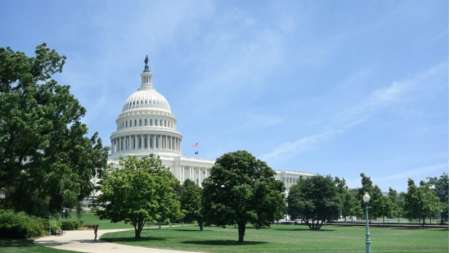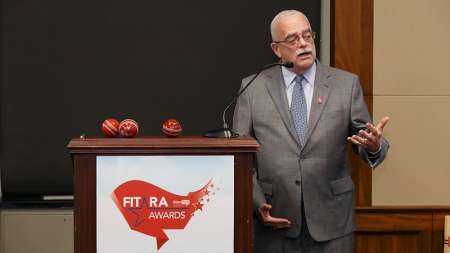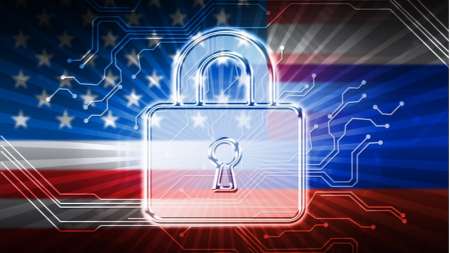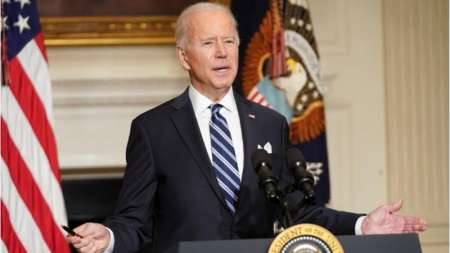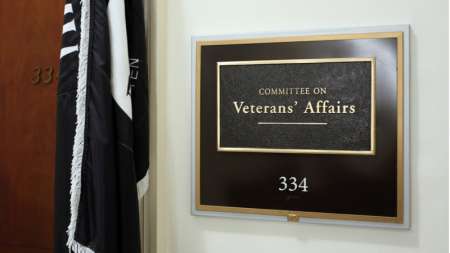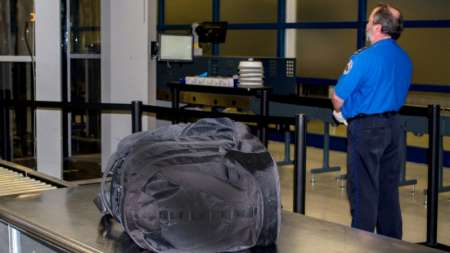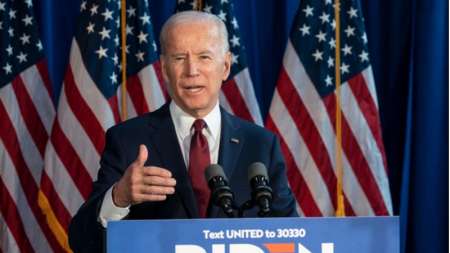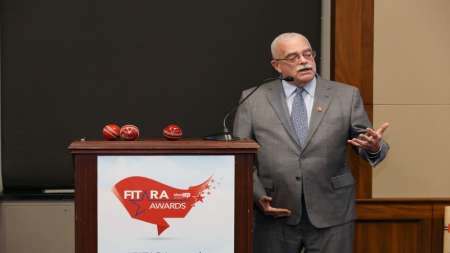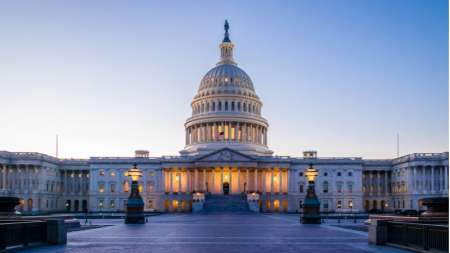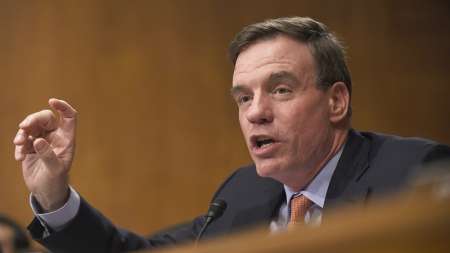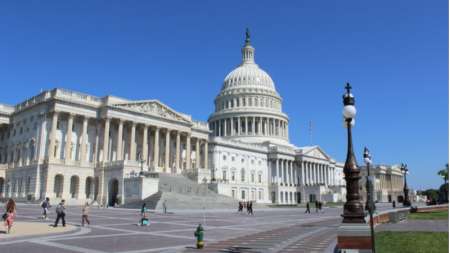A bipartisan group of senators has reintroduced the Rural STEM Education Act, which would provide Federal support for STEM training in rural schools and instruct the director of the National Science Foundation (NSF) to provide grants to support training for rural STEM teachers. […]
The Senate Committee on Commerce, Science, and Transportation advanced a number of bipartisan bills out of committee in an executive session today including four with tech implications. Those bills are a telecommunications workforce bill, one on tech research, one that would map broadband connectivity and maternal health outcomes, and another to protect victims of domestic violence. […]
President Biden’s American Families Plan announced today proposes providing two years of subsidized tuition and expansion of programs in high-demand fields— such as science, technology, engineering, and math (STEM)— at Historically Black Colleges and Universities (HBCUs), Tribal Colleges and Universities (TCUs) and other minority-serving institutions (MSIs). […]
Sens. John Thune, R-S.D., and Maggie Hassan, D-N.H., introduced two separate bills that aim to boost United States leadership in quantum information science (QIS). […]
On April 15, Sen. Ron Wyden, D-Ore., released a discussion draft of legislation that would regulate the exportation of American citizen’s sensitive, personal information to adversarial nations. […]
Bipartisan leadership of the House Government Operations Subcommittee introduced a bill today that would make sure Federal agency CIOs – along with chief data, financial, and human capital officers – are wrapped into the process of how agency leaders craft performance plans for their organizations. […]
House Oversight and Reform Committee Chairwoman Carolyn Maloney, D-N.Y., asked President Biden in a March 24 letter to move quickly on nominating a National Cyber Director as provided for under the FY2021 National Defense Authorization Act. […]
While the structure and details of President Biden’s upcoming infrastructure proposal are still mostly unknown, the President and his team have dropped some possible hints in recent days on items that may touch the infrastructure plan, including a boost in spending on scientific research, and attention toward infrastructure cybersecurity. […]
House Science, Space and Technology Committee Ranking Member Frank Lucas, R-Okla., is reintroducing legislation proposing the U.S. double its investments in research funding across several Federal agencies and create a national science and technology strategy. […]
Sen. Brian Schatz, D-Hawaii, reintroduced the Data Care Act in the Senate on March 23, leading a pack of 17 senators looking to protect user data from hacks and hold companies liable for misuse. It is Schatz’s third time introducing the bill, having introduced similar versions in both the 115th and 116th Congresses. […]
Sens. Joe Manchin, D-W.V., and John Cornyn, R-Texas, and Reps. Jim Cooper, D-Tenn., and Roger Williams, R-Texas, have reintroduced the Eliminate the Digital Divide Act, which is intended to expand rural broadband access in rural America. […]
A bipartisan group of senators has introduced the Department of Veteran Affairs (VA) IT Reform Act, which aims to increase congressional oversight of agency IT and would require VA to provide reports on IT projects before they begin. […]
Bipartisan legislation introduced in the House and Senate on March 16 would change the Federal Advisory Committee Act to make more transparent the work of advisory committees that provide expert advice to Federal agencies. […]
A bipartisan group of legislators introduced has the Department of Homeland Security (DHS) Industrial Control Systems Enhancement Act of 2021. The legislation will solidify the Cybersecurity & Infrastructure Security Agency’s (CISA) lead role in protecting critical infrastructure – particularly industrial control systems (ICS) – from cyber threats. […]
Majority Whip Rep. James Clyburn, D-S.C., and Sen. Amy Klobuchar, D-Minn., introduced a $94 billion Accessible, Affordable Internet for All Act in the House and Senate, respectively. The bill also has the support of Clyburn’s Rural Broadband Task Force, composed of 27 House Democrats. […]
Legislation to invest in 21st century security technology, bolster Transportation Security Administration (TSA) funding and its workforce, and end diversion of passenger security fees was reintroduced by a bipartisan group of House representatives on March 11. […]
President Biden signed into law the American Rescue Plan Act today, a day ahead of schedule due to a speedy transmission of the legislation by the House. The $1.9 trillion COVID-19 relief bill forms the centerpiece of the Biden administration’s initial legislative agenda. […]
Rep. Suzan DelBene, D-Wash., reintroduced the Information Privacy and Data Transparency Act that would adapt state privacy laws and proposals into a national standard for data privacy. She introduced a similar version of the legislation in 2019, but it ultimately did not gain traction. […]
Rep. Gerry Connolly, D-Va., long a prime mover in the House for Federal IT modernization, today hailed the inclusion of $1 billion of new funding for the Technology Modernization Fund (TMF) in the $1.9 trillion American Rescue Plan Act approved by the House. […]
A newly introduced bill in the House of Representatives would give Americans the ability to make claims in Federal or state courts against foreign states that engage in cyberattacks against U.S. citizens. […]
After the transmittal of the bill took longer than initially expected, the House of Representatives now plans to vote on the Senate version of the $1.9 trillion American Rescue Plan Act on Wednesday, March 10, according to multiple reports. The House vote had been expected on March 9. […]
The House plans to vote Tuesday, March 9 on the version of the American Rescue Plan Act approved by the Senate over the weekend, setting the stage for the $1.9 trillion coronavirus relief bill to become law with President Biden’s signature later this week. […]
The Senate version of the $1.9 trillion American Rescue Plan approved over the weekend features an amendment with a provision to extend relief to government contractors for paid leave, if they can’t work through the end of the fiscal year ending in September. […]
The Senate voted March 6 to approve the $1.9 trillion American Rescue Plan Act after a lengthy amendment and debate process that pushed the vote into the weekend. […]
The Senate as of late Friday afternoon was continuing to debate the Biden administration’s $1.9 trillion American Rescue Plan Act, which contains considerable increases in Federal government funding for agency IT modernization and security upgrades. […]
A bipartisan group of senators led by Sen. Mark Warner, D-Va., on March 4 introduced the Democratic Technology Partnership Act, which would create an interagency effort aimed at forming technology partnerships among democratic countries to counter Chinese tech dominance. […]
After some delay waiting for an official bill “score” from the Congressional Budget Office (CBO), the Senate voted today to begin debate on legislation that embodies the Biden administration’s $1.9 trillion American Rescue Plan. […]
The Senate was expected later today to introduce its version of President Biden’s $1.9 trillion American Rescue Act, and to begin 20 hours of scheduled debate on the legislation. […]
After the House version of the reconciliation bill passed last week, the Senate will bring its version of the bill to a vote by week’s end, Senate Majority Leader Chuck Schumer said. While the Senate is still working on finalizing its draft of the legislation, parameters for votes and amendments have already been set, according to internal Senate communication. […]
The House version of the American Rescue Act – born from President Biden’s $1.9 trillion COVID-19 relief proposal unveiled in January – now features a provision that would provide $2 billion for the Department of Labor (DoL) to use to help states upgrade their unemployment insurance (UI) systems. […]


